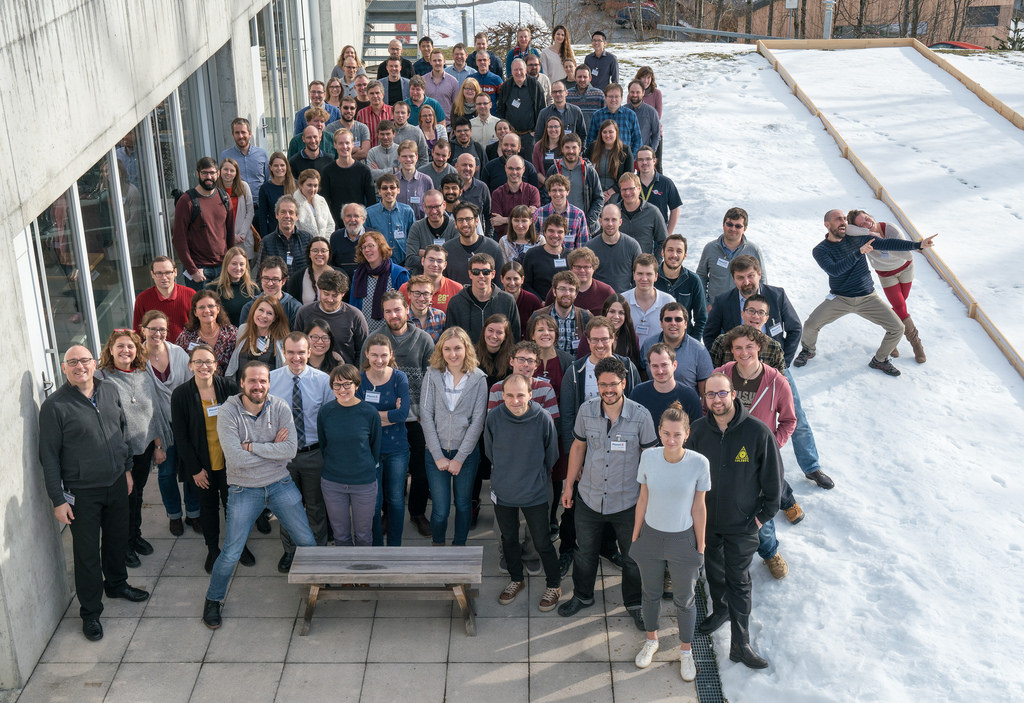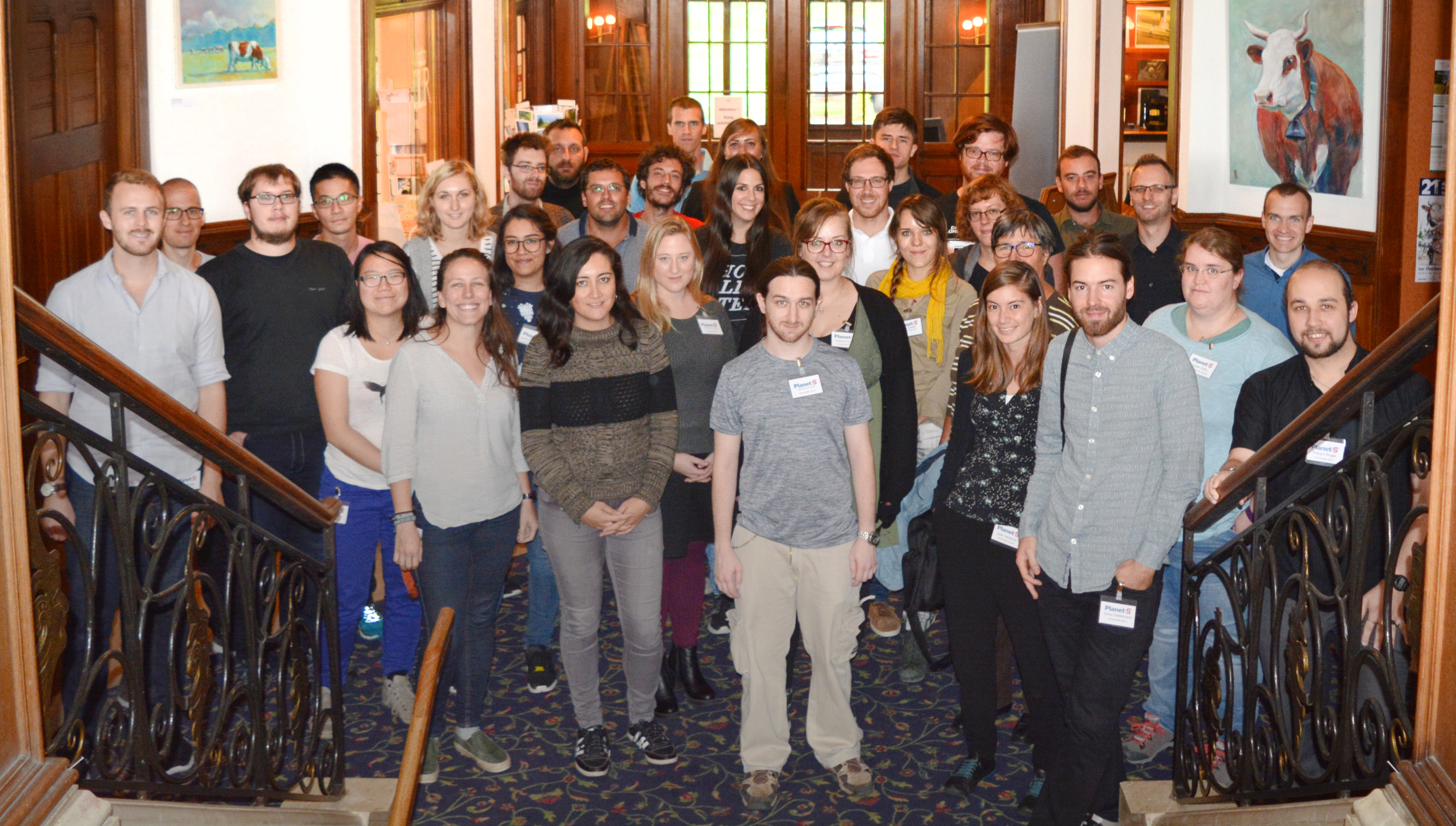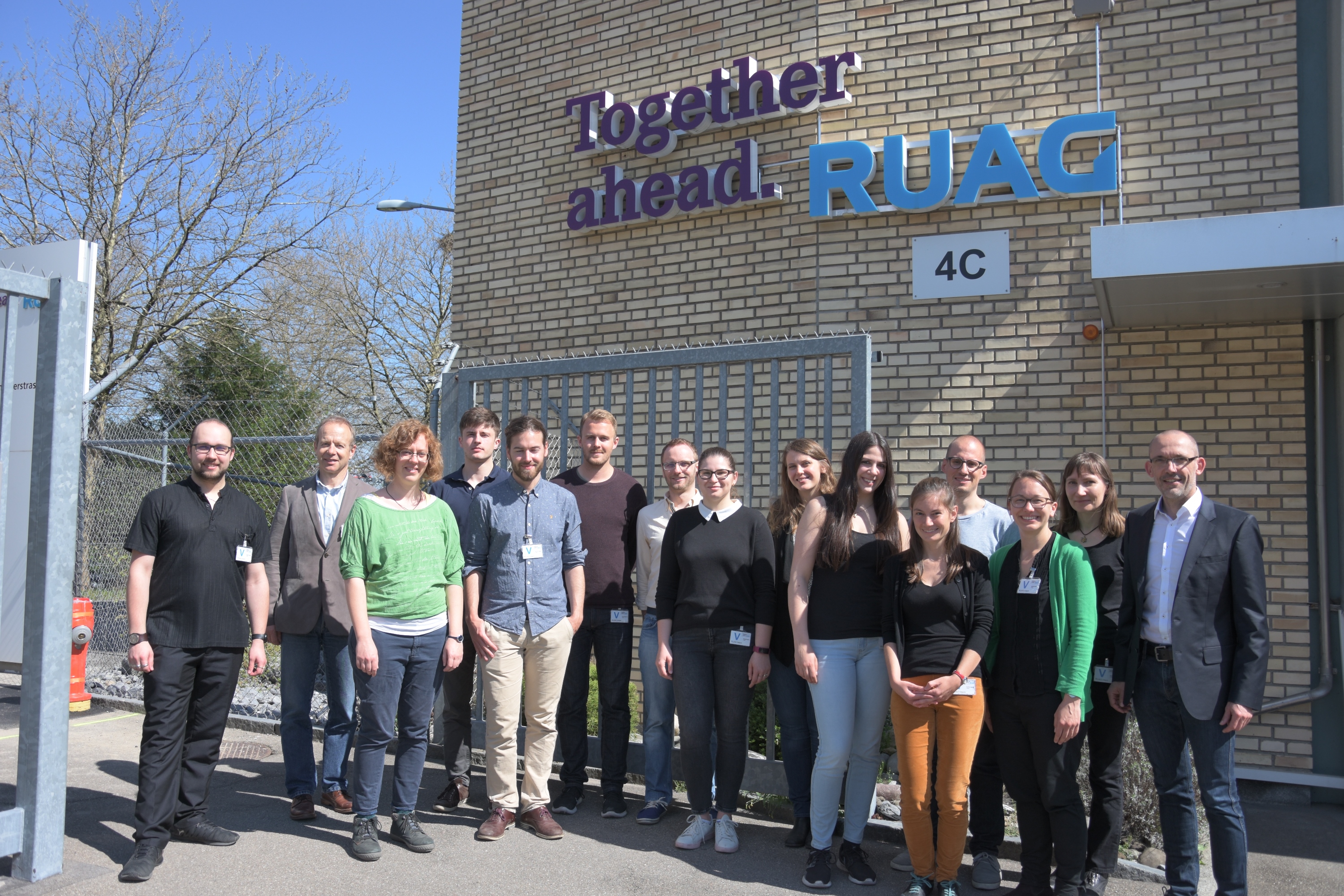Ask the NCCR

Do you want to know more about PlanetS, its organization, structure, options, prospects or limitations? After this year’s General Assembly and some subsequent discussions, we thought that a number of issues might not be clear and asked you to send us all these questions you have about the NCCR that you never had a chance to ask (or dared asking). Here are the answers to the first three questions. In the next editions of the InsiderS we will deal with further questions. So, please continue to ask the NCCR.

Members and associates of the NCCR PlanetS at the General Assembly 2018 in Grindelwald. (Photo Sylviane Blum)
1) Are there any competences of NCCR that go beyond the competences of the individual institutes?
The competences and obligations of the NCCR are defined by a contract signed jointly by the SNSF, the rectors of the leading houses (UBE and UGE), and the Director of the NCCR. The individual institutes are not signatories of this contract. Hence, a NCCR is not part of an institute but is directly linked to the rectorate of the leading house(s). The contract also sets the level of the budget for a period of four years from both SNSF and the leading houses as well as the spending profile for the period. This budget comes on top and is separate from what the institutes receive.
Within the boundaries set by the contract, the NCCR is fully competent to decide about all its activities, its hiring, and its spending without having to consult the individual institutes. Clearly, the need for coordination and a coherent approach implies that good relations between institutes and the NCCR are in everyone’s interest. New significant activities not already mentioned in the proposal or the yearly report need prior SNSF approval. Because the level of resources of the NCCR is defined for periods of four years (with a maximum of 12 years in total), the NCCR cannot commit to funding activities or people beyond this limit. Therefore, permanent positions, for example, remain in the remit of the Universities and not of the NCCR.

The participants of the JUniors Researchers’ Assembly. JURA is a tool created by the NCCR PlanetS to strengthen the interactions amongst early-career scientists. (Photo PlanetS)
2) Are there any responsibilities towards the members or associates of NCCR that concern the time AFTER the NCCR? Does NCCR or the individual institutions have those responsibilities?
Members and associates of the NCCR sign a work contract with the management of either the NCCR (members) or their local institute (associates). This contract stipulates the responsibilities and obligations of both parties from a legal perspective. The work contract generally also stipulates a duration of employment. Once the termination date is reached, the responsibilities as well as the obligations of both parties legally cease. Due to its limitation in time, the NCCR cannot establish contracts exceeding its duration and therefore cannot have responsibilities/obligations extending beyond its lifetime.
Of course, beyond purely legal responsibilities/obligations are the commitment to provide the best possible environment for collaborators (members and associates) to develop their skills and reach their full potential. It is in the responsibility of the NCCR to provide its collaborators with these opportunities and to give them a chance to profile themselves in their area of expertise. Just like parents with children, the NCCR can only prepare its collaborators for the future, but this future will have to be for the clear majority outside the NCCR.

With the support of the NCCR Academic Platform the event “Links between Industry and Academia” was organized – one of many PlanetS workshops. (Photo PlanetS)
3) Besides providing more money to exoplanetary sciences and having the incentive to create collaborations, what are the aspects that would not be possible without the NCCR?
NCCRs are selected during a two-year process in a national competition covering all areas of sciences (social as well as natural sciences and medicine). The two key selection criteria are: 1) scientific excellence and 2) strategic importance for Switzerland. The first one is established by SNSF while the second one is assessed by the State Secretariat for Education, Research, and Innovation (SEFRI). Hence, NCCRs are branded as being scientifically excellent and nationally relevant. These non-financial attributes make NCCRs quite unique and create an aura facilitating contacts and negotiations at national as well as international levels.
Of course, many other things not directly in planetary sciences are made possible but they are a consequence of the additional funding associated with the NCCR. For example, our large education and outreach programme would essentially be inexistent without dedicated funding. The many activities proposed to balance work and life as well as develop the soft skills so important for a career would essentially all but disappear. Technology and know-how transfer would essentially no longer be actively pursued in terms of a successful seed funding scheme for novel ideas and in terms of promoting entrepreneurship. PlanetS is a large enterprise that extends significantly beyond pure science and scientific collaborations.
Please send your questions to: barbara.vonarburg@space.unibe.ch
Categories: Internal Newsletter
